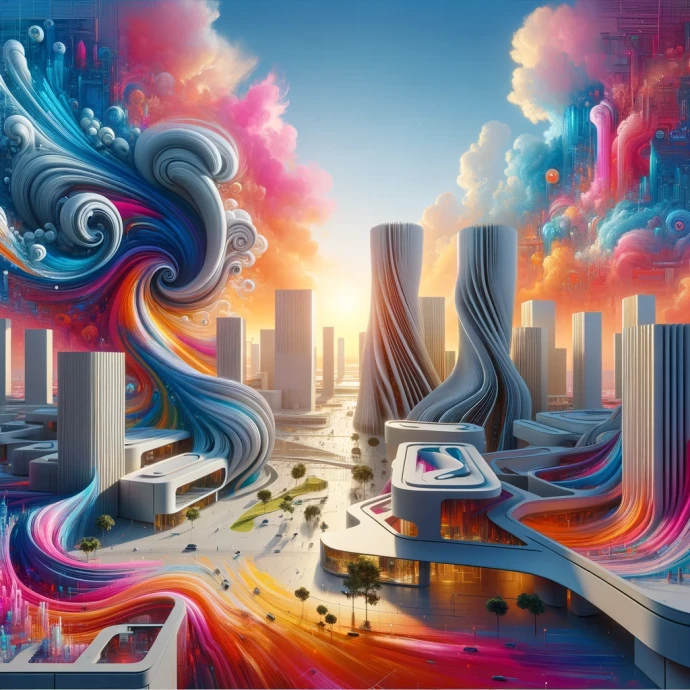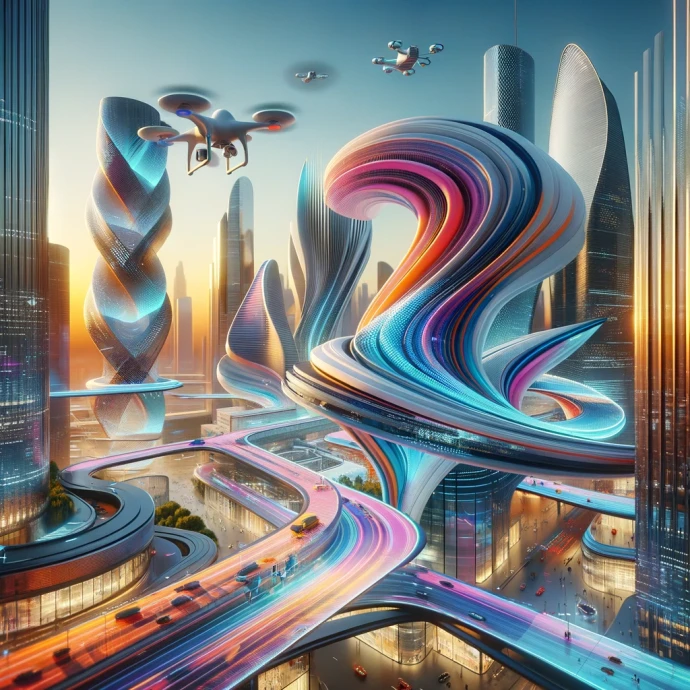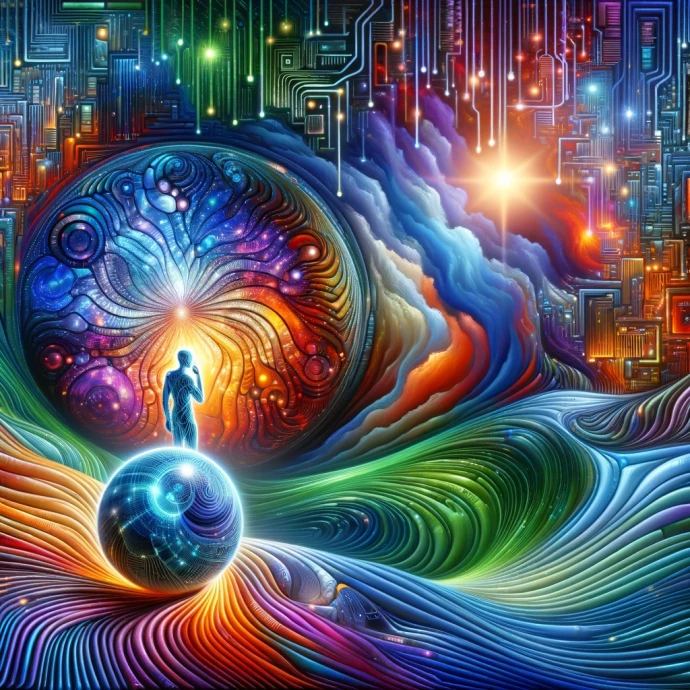The AI Revolution in Architecture or How Innovation Meets Existential Threat

In the computerized age, engineering winds up at a junction, not just concerning plan and usefulness but rather in its actual quintessence and future direction. The coming of AI instruments like DALL-E, Midjourney, and Stable Diffusion isn't simply a development; it's an upheaval, reshaping the horizon of potential outcomes while creating long-shaded areas over conventional practices. This blog entry plunges into the core of this change, investigating the thrilling and now and again, agitating excursion of engineering in the period of AI.
The Strange Wilderness: AI's Compositional Minds

As we look at what our Instagram takes care of, the calculation frequently drives us to a reality where design communicates in the language of dreams and conceivable outcomes. From structures that appear to challenge the laws of physical science, suggestive of Zaha Hadid's liquid structures, to Afrofuturist cityscapes that could have a place with the universe of Wakanda, Artificial intelligence has guided us into another time of plan. These pictures, brought into the world from the rich grounds of AI calculations with only a couple of expressions of inciting, address more than simply advanced workmanship. They challenge our impression of what can be constructed, combining the future with the whimsical, the common with the strange.
From Dream to Plan: The Pragmatic Uses of Artificial Intelligence
Past the eye-getting visuals via virtual entertainment, man-made intelligence's effect on design digs profound into the stray pieces of the calling. Unremarkable yet basic errands, for example, the circulation of parking spots or the course of action of metropolitan plans are presently under artificial intelligence's space. This shift isn't paltry; it implies a significant change in how engineers approach configuration, permitting them to zero in on imagination and development by offloading routine undertakings to their computerized partners.
The Visionaries: Planners at the Artificial Intelligence Intersection
Hassan Ragab and Wanyu He stand as torch bearers of this new period. Ragab, with his fanciful dreams, has tackled AI to make symbolism that mixes cutting-edge design with the crude magnificence of nature and the nuanced intricacy of Egyptian metropolitan scenes. Then again, his work with XKool tries to ground AI's expectations in the unmistakable universe of plan and development, taking a stab at a beneficial interaction where AI supports acknowledging more financially savvy, yet tastefully satisfying, design arrangements.
Artificial Intelligence: A Device for Creation or a Harbinger of Oldness?

The inquiry poses a potential threat: Will artificial intelligence deliver the modeller old? While some, such as Ragab, view AI as a freeing force that expands the material of structural imagination, others harbor concerns. Adam Greenfield cautions of a future where the draftsman's job is lessened, scrutinizing the actual quintessence of human imagination and its position despite AI's persistent development.
Zaha Hadid Engineers: A Contextual Analysis Of AI's True Capacity
Zaha Hadid Engineers (ZHA) offers a brief look into how artificial intelligence can be tackled to both honor inheritance and clear new ways. Using man-made intelligence as a device to produce new plans in view of a rich history of past tasks, ZHA exemplifies the potential for Artificial intelligence to act not as a substitution for human imagination but rather as an enhancer, growing the skyline of what is conceivable in engineering plan.
The Moral and Existential Components of Artificial Intelligence in Engineering

As man-made intelligence keeps on meshing its direction into the texture of engineering, it carries with it a large group of moral and existential inquiries. The calling remains at a cliff, glancing out over a scene everlastingly changed by computerized development. Draftsmen and creators are called to explore this new territory, adjusting the charm of AI's abilities with the basics to keep up with the human quintessence at the core of structural undertaking.
All in all, the excursion of engineering into the domain of artificial intelligence is laden with both commitment and risk. As we wonder about the dreamlike scenes and imaginative plans brought into the world from man-made intelligence's advanced loom, we should likewise contemplate the more profound ramifications of this mechanical tide. The eventual fate of design in the period of man-made intelligence will be molded by the capacities of calculations as well as by the insight with which we use this new device, guaranteeing that at the centre of each and every computerized dream lies a particularly human vision.

Become a part of digital history





Comments about The AI Revolution in Architecture or How Innovation Meets Existential Threat